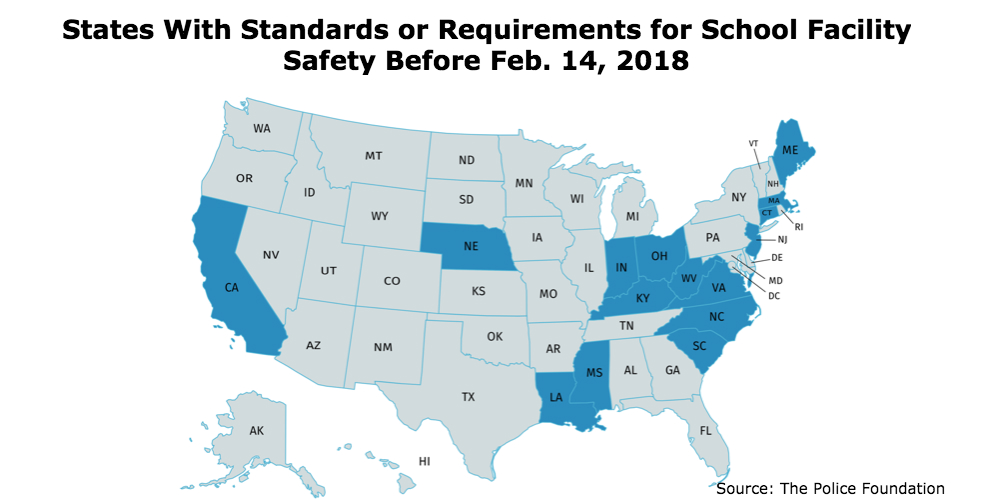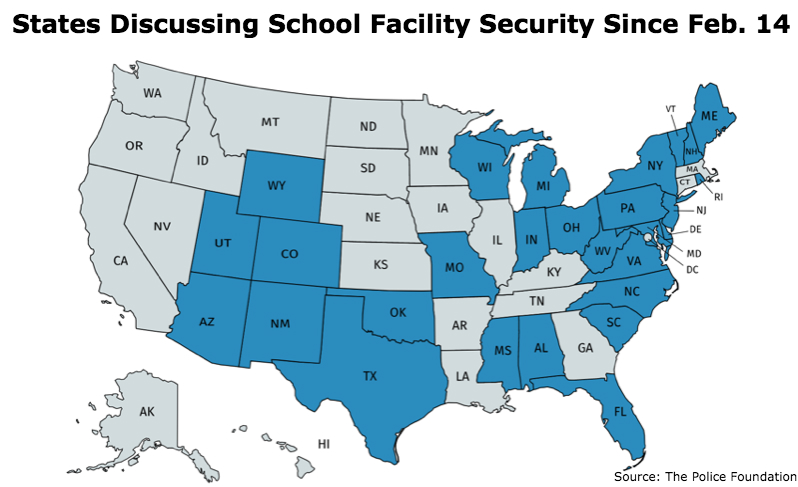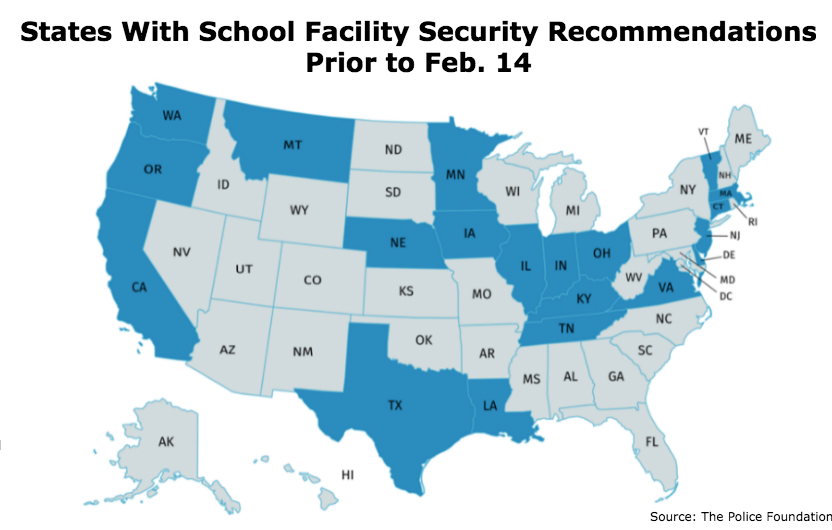School security advocates demanded more guidance from the government as findings of an ongoing study on state school security requirements revealed minimal standards that vary widely.
Advocates called for the creation of an independent federal school security board or National Center of Excellence during an event on Capitol Hill June 28. They stressed that such an organization would be a good way to organize guidelines and best practices for people making school security decisions.
“A National Center of Excellence for School Safety could be that hub for research, training, intellectual exchange and a place where people can go to ask questions and get resources,” Dr. Erroll Southers of the Sol Price School of Public Policy at the University of Southern California said at the Security Industry Association’s GovSummit event.
Study Shows Inconsistencies in State K-12 School Security Standards
The demands followed the release of preliminary findings from a comprehensive analysis of school security requirements. The study, which is being conducted by the Police Foundation, shows only 15 states had some type of school facility security requirements prior to the Parkland, Florida shooting (see map below). The study also shows that many state legislatures are actively discussing school security measures.

Prior to the shooting at Marjory Stoneman Douglas High School, most states had no form of school facility security requirements.
Ben Gorban, the policy analyst for the Police Foundation who presented the findings, said that even among states with security requirements, those requirements varied significantly in focus and few addressed school facility security “in a meaningful way.”
Additionally, the study found that very few of the states with requirements have outlined clear repercussions if schools don’t meet those requirements.
The Police Foundation, a national non-profit and non-partisan organization, concluded that other issues with existing requirements include:
- Many lack clarity and specificity
- Many do not include implementation steps for districts to follow
- They can be very difficult to locate online for administrators and the public
“We learned school security legislation is difficult to find,” Gorban said. “A lot of school safety standards start as fire safety, so when you go to look for it, it’s often still in the fire code; so if you’re a teacher or parent, you may not know where to look for that.”
[promo_content slug=”police-foundation-csc-east-2018-promo”]
The number of states with school security requirements may be discouraging to some, but since the Feb. 14 shooting at Marjory Stoneman Douglas High School, the Police Foundation found state legislatures across the country have begun considering the issue.

But despite that activity, very few states have actually passed legislation since February 14.
The study also found that 20 states had general exercises, toolkits and training prior to the Parkland shooting but far fewer had publicly-available guidance for schools to follow to secure their campuses.

Gorban says there’s been a lot of focus on safety initiatives like anti-bullying and anti-drugs but not as much on school security regulations.
“There has to be a clear distinction between what safe schools are and what secure schools are, and right now legislation on what secure schools are is lacking.”
The Police Foundation does not advocate for any particular policies.
The Secure Schools Alliance (SSA), a non-profit group of security industry, law enforcement, public safety and education officials, organized the Capitol Hill event and funded the Police Foundation’s research.
For the research, The Police Foundation reviewed publicly-available materials including:
- Legislation and proposals
- Guidelines, assessment tools, toolkits, resources, etc.
- Open-source media outlets
The Push For School Security Guidance
Organizations like SSA are increasingly pushing for a national conversation between education officials, security industry leaders and government agencies. Robert Boyd, SSA’s executive director, has called for the creation of a School Safety Center in every state. Some recent milestones in those areas include:
- In 2016, lawmakers launched the School Safety Caucus to facilitate those talks and look at the best ways for schools to keep student safe.
- The Police Foundation found that Delaware, Rhode Island and New York have passed school security legislation since Feb. 14. Florida has also passed a sweeping law that deals with school security, and Maryland passed a law that bolsters school emergency preparedness and mental health resources.
- The federal STOP School Violence Act was passed in March.
- Campus Safety has written about large initiatives by state governors to improve school security in states like Texas. These initiatives often come in the wake of tragedies.
- The National Fire Protection Agency’s newly-released active shooter guidance can be used by schools.
Scott Breor, the director of the Protective Security Coordination Division of the Department of Homeland Security, assured the GovSummit’s attendees that government officials are working hard to support K-12 schools.
“We are definitely not waiting for the shoe to drop,” Breor said with respect to providing security guidance for schools. “We take this very seriously.”
Tim Eckersley, the president of Allegion, which partners with SSA, said at the event that a national board should be investigating and learning from each one of the recent tragedies in U.S. schools.
“If you’re in school and worried about whether or not you’re safe, there’s no possible way to learn,” Eckersley said. “We can make that happen. We can make schools better than they are. I know that we can do better, and it is our moral obligation as an industry to do that.”






